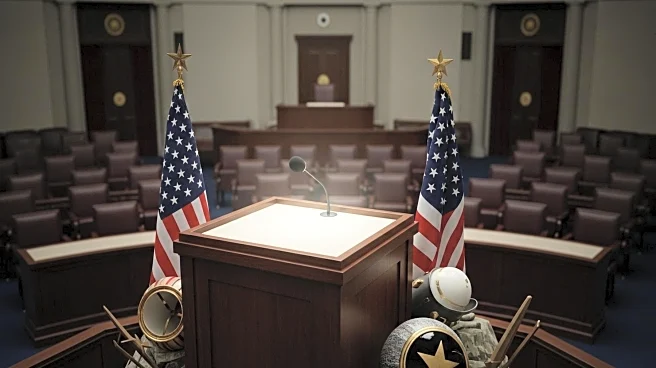What is the story about?
What's Happening?
House Speaker Mike Johnson has publicly addressed the issue of military pay during the ongoing government shutdown. Johnson rejected the idea of passing a standalone bill to ensure military personnel receive their paychecks, despite the shutdown causing U.S. troops to miss their pay. The shutdown has led to significant uncertainty, with President Trump commenting on the potential firing of furloughed workers. The situation highlights the broader impacts of the government shutdown on federal employees and military personnel, as discussions continue on how to resolve the impasse.
Why It's Important?
The government shutdown has significant implications for military personnel and federal employees, who face financial uncertainty due to missed paychecks. The refusal to pass a standalone bill for military pay underscores the political complexities involved in resolving the shutdown. This situation affects not only the livelihoods of those directly impacted but also raises concerns about national security and military readiness. The broader economic impact includes potential disruptions in government services and increased pressure on lawmakers to find a resolution.
What's Next?
As the government shutdown continues, discussions among lawmakers are expected to intensify. The focus will likely be on finding a compromise to end the shutdown and address the financial concerns of military personnel and federal employees. Stakeholders, including political leaders and advocacy groups, may increase pressure on Congress to act swiftly. The potential firing of furloughed workers, as mentioned by President Trump, could lead to further political and public backlash, prompting urgent negotiations.
Beyond the Headlines
The government shutdown highlights deeper issues within the U.S. political system, including partisan divisions and the challenges of governance. The impact on military pay raises ethical questions about the treatment of service members and the prioritization of government spending. Long-term, this situation could influence public opinion on government efficiency and accountability, potentially affecting future elections and policy decisions.















